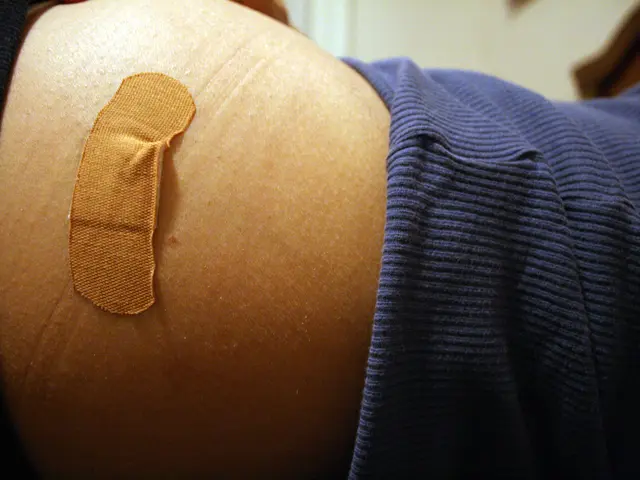Boosting Vitamin D intake potentially extends lifespan by approximately three years.
A study published in The American Journal of Clinical Nutrition has suggested that vitamin D supplementation may help slow down the natural shortening of telomeres, which are protective cap-like structures at the ends of chromosomes and associated with healthy aging. The research, which was based on data from the VITAL trial, found that over four years of vitamin D supplementation minimized telomere shortening in white blood cells.
Telomere shortening is a natural process that happens with age and is linked to an increased risk of death and certain diseases. By helping protect the ends of chromosomes, vitamin D supplementation could potentially delay these cellular aging mechanisms and slow down biological aging.
The VITAL trial, a double-blind, placebo-controlled study that included almost 26,000 adults aged 50 and above, found that participants who took vitamin D supplements showed only minimal telomere shortening over two and four years. In contrast, participants who received the placebo had substantial telomere shortening at both time points.
Researchers examined telomere length in white blood cells among participants who received supplements and those who received the placebo. They analyzed over 2,500 samples from more than 1,000 participants, adjusting for various covariates and conducting an exploratory subgroup analysis to investigate the impact of factors such as high blood pressure and diabetes.
While omega-3 fatty acid supplementation appeared to have no significant impact on telomere length, vitamin D's effects on telomere length were significant for participants not taking cholesterol medication and for non-white participants. Additionally, there was no significant interaction with body mass index, but researchers observed that participants who were not obese had significantly minimized telomere shortening.
However, it's important to note that most participants in the study were white, and the data may not be generalizable to other groups. Additionally, the analysis was a post-hoc analysis of an already completed study, and unaccounted-for factors may have influenced the results. Future research could further investigate why vitamin D may have these effects on telomere length, including its potential impact on the enzyme telomerase, which helps lengthen telomeres and protect against DNA damage.
Family medicine physician David Cutler, who was not involved in the study, noted the potential benefits and limitations of the study. While vitamin D could help reduce the risks for age-related diseases if its benefits are confirmed in future studies, there may be some risk associated with vitamin D supplements due to their fat soluble nature and potential consequences for kidney function and other adverse effects in excessive quantities.
Yoshua Quinones, a board-certified Internist, also noted the potential benefits of daily vitamin D supplementation, suggesting it could aid in reducing risks for age-related diseases and even slow down the cellular age. However, Quinones emphasized the need for further research to confirm these findings and evaluate potential risks.
In summary, the results of the VITAL trial suggest that vitamin D supplementation may help slow down the shortening of telomeres and potentially delay cellular aging mechanisms, thus potentially reducing susceptibility to several age-related diseases. These findings warrant further investigation to confirm their implications for healthy aging and preventive medicine.
- Seniors might find that supplementing their diet with vitamin D could slow down the natural shortening of telomeres, which is associated with healthy aging.
- As part of a healthy-diets strategy, incorporating generic health products such as vitamin D supplements could potentially help in delaying biological aging.
- Nutritionists recommend that seniors need to pay special attention to their antiaging diets, which may include supplements like vitamin D for maintaining cellular health.
- Studies have indicated that therapies and treatments like vitamin D supplementation could play a role in agingandlongevity, particularly by slowing down telomere shortening.
- Workplace-wellness programs should consider incorporating information about the potential benefits of supplements like vitamin D for healthy aging and longevity.
- Skin-care regimens can be supplemented with essential nutrients such as vitamin D, which research suggests could help slow down the aging process.
- Men's health can benefit from specific supplements, such as vitamin D, that have potential antiaging properties and help maintain overall fitness-and-exercise performance.
- Those with certain medical-conditions like low vitamin D levels may benefit from supplementation, as these conditions are linked to an increased risk of cellular aging.
- Fitness enthusiasts and exercise lovers should take note of the role science has uncovered between vitamin D and cellular aging, as supplementation might help maintain a youthful physique and improve health-and-wellness.
- Women dealing with the complexities of aging can turn to products like vitamin D supplements and healthy-diets for support in maintaining skin-care, bone health, and overall womens-health as they age.







